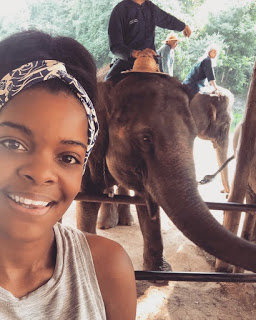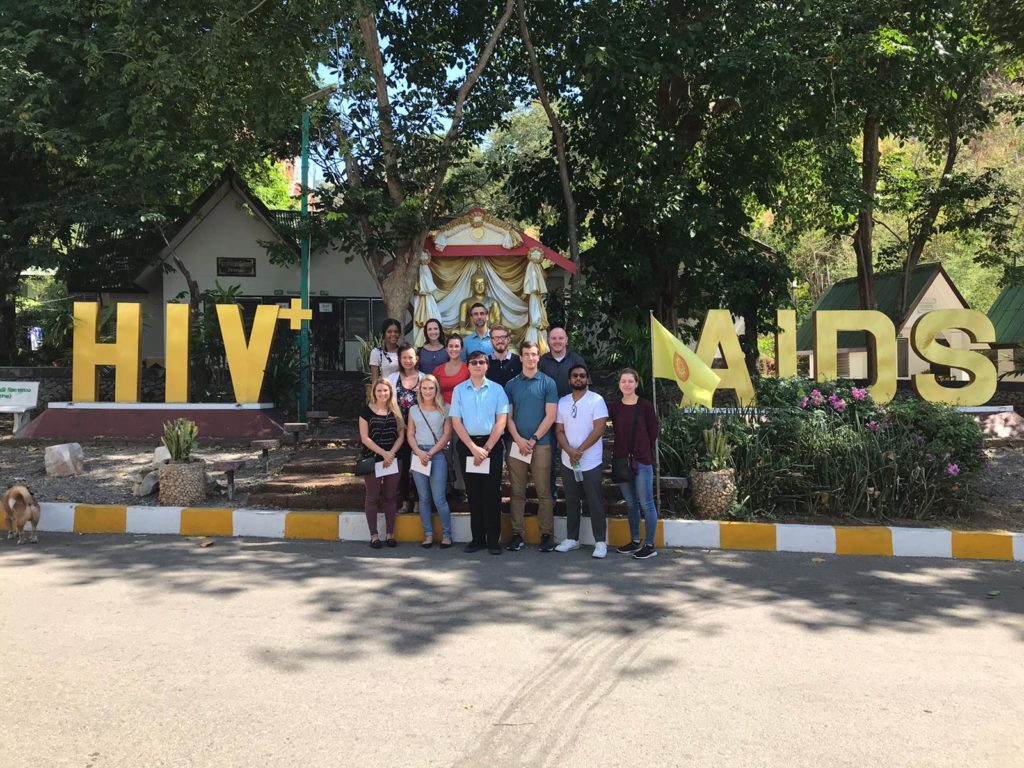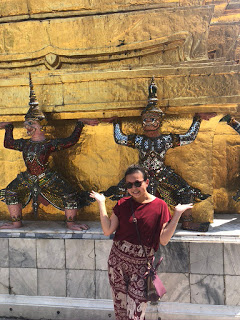During the fourth year at UNE’s College of Pharmacy, students go on six week rotations called APPEs. Instead of traditional classroom learning, students learn in pharmacy settings from other pharmacists. During these six week rotations, they get to experience pharmacy in a variety of settings. Students have the opportunity to travel to Thailand during one of the rotations to grow in their understanding of healthcare systems around the world.
The following is written by P4 student, Nicholas Bolognia.
4 WEEKS COME AND GONE…
Wow. I never expected four weeks time to go by so fast. In that time I was able to explore a unique country while learning about my profession in an area of the world that differs so much from our own. In this post I will attempt to convey some of what I learned along the way.
This rotation has allowed me to learn about the healthcare system utilized in Thailand. They operate with a universal healthcare system that allows all Thai citizens to receive healthcare at no cost. Patients will wait for hours a day to see a doctor and pick up prescriptions. Generally all of this can be completed at one facility in one trip, which differs from our system in that prescriptions are sent to an outside pharmacy (in most cases) and picked up at a later time. Community pharmacies also use prescriptions very differently than we do in the United States. Pharmacists are able to essentially prescribe and dispense drugs based on patient symptoms and presentation. However, this has resulted in high antibiotic resistance rates. They also have a large number of fraudulent pharmacies in which the owner purchases a license from an actual pharmacist to open a store and distribute medications. They have started to implement measures that allow patients to recognize which pharmacies are legitimate and which ones are phony.
I have also been able to make myself more aware of cultural factors that influence some people’s decision making as it pertains to their healthcare. Traditional Thai medicine as well as Chinese medicine are huge components of treatment of diseases and conditions in Thailand. We were able to visit traditional Thai medicine wards as well as an entire facility that provides services such as massage and acupuncture to name a couple. This is useful in the way that I practice because it may help me understand a patient’s decision making in the future and allow me to better empathize with my patients.
As time goes on I will periodically do some self reflecting on my time in Thailand and how my experiences will change me or how they may already have changed me. Traveling has always been a great way for me to push my comfort zone so that I may grow as a person. This trip certainly did that for me and I found that I had plenty to ponder on throughout the entire trip.
To any students considering this as a rotation in the future, it is well worth it. Be aware that, unfortunately, life in Thailand is not glamorous for many people; however, if you approach it with an open mind and with the intentions of fully exploring this opportunity and all that it has to offer, you will be royally rewarded with an experience you will never forget. 10/10 would recommend this elective rotation.




